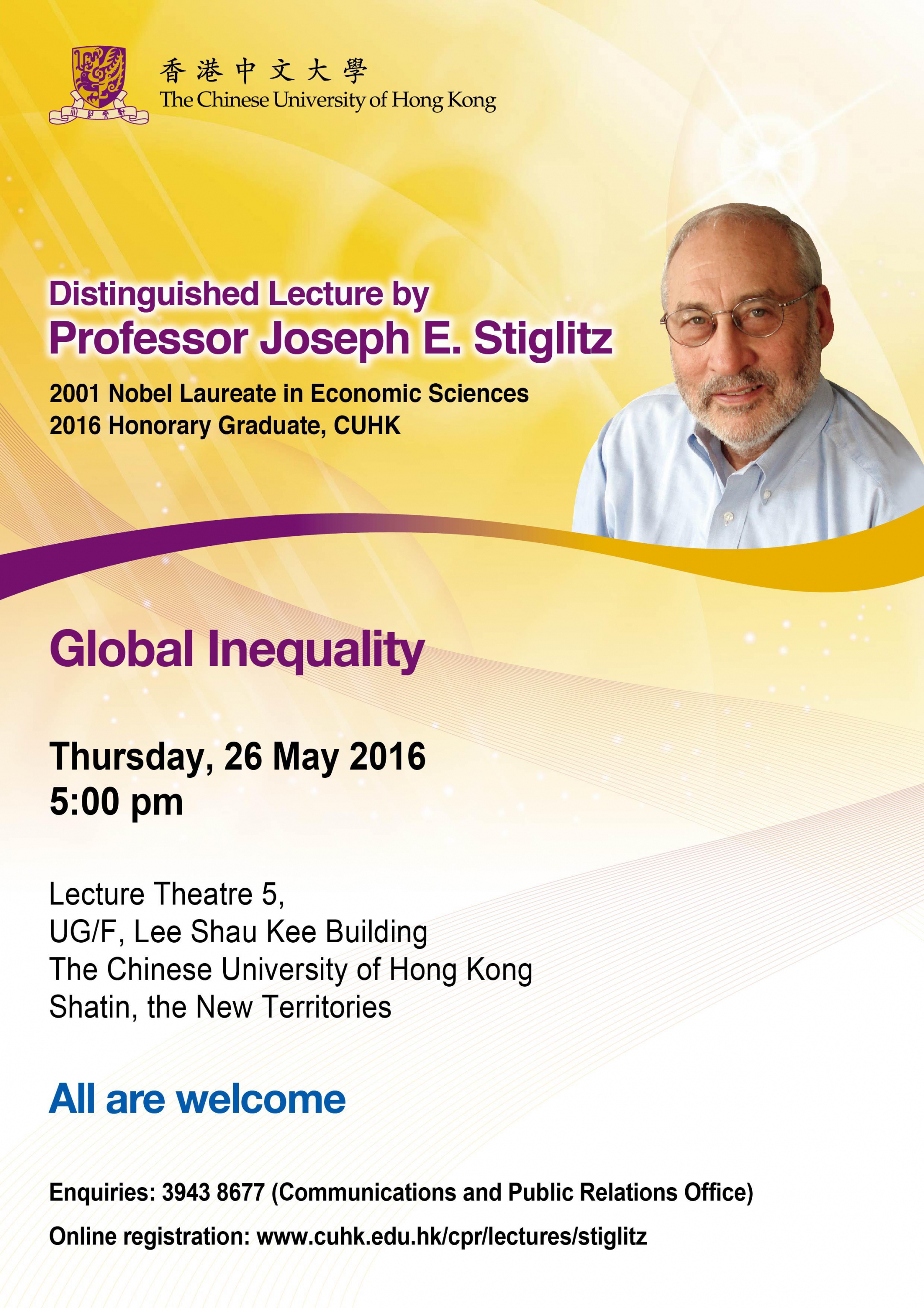Events
Distinguished Lecture by ProfessorJoseph E. Stiglitz, 2001 Nobel Laureate inEconomic Sciences on "Global Inequality"
26 May 2016
5:00 pm
香港中文大學李兆基樓高層地下五號演講廳
Lecture Theatre 5, UG/F, Lee Shau Kee Building, CUHK
Professor Joseph E. Stiglitz, an American economist, received his PhD from MIT in 1967, and became a full professor at Yale in 1970. He is now University Professor at Columbia University in New York. He was the founder and the Co-President of the Initiative for Policy Dialogue at Columbia. In 1979, he was awarded the John Bates Clark Award, given biennially by the American Economic Association to the economist under 40 who has made the most significant contribution to the field. He has made major contributions to macro-economics and monetary theory, to development economics and trade theory, to public and corporate finance, to the theories of industrial organization and rural organization, and to the theories of welfare economics and of income and wealth distribution. Professor Stiglitz had been involved in a number of researches and had been a part of renowned organisations and universities. In 2001, he was awarded the Nobel Memorial Prize in Economic Sciences for his analyses of markets with asymmetric information. In 2011, Time named Stiglitz one of the 100 most influential people in the world.
3943 8677
Around the world, there is a concern about the increasingly unequal distribution of wealth and income. Inequality matters in and of itself: it is unjust that a child’s prospects are more dependent on the income and education of his or her parents than his or her own merit. Inequality also matters because of the damaging consequences it has on society, democracy and the economy. This lecture will examine the dimensions of inequality, focusing particularly on the advanced economies and alternative explanations for the increase in inequality. It will analyze some of the economic consequences of this increase in inequality, and finally, it will describe what can be done to reduce inequality. The central thesis of this lecture is that much of the increase in inequality is a result of policies, not inexorable economic forces, and that much of the increase in inequality has been a result of an increase in rents. We suggest a set of policies that would simultaneously increase economic performance and curb the growing inequality.




